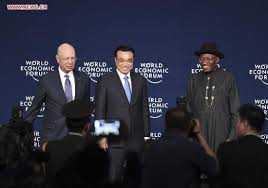By Peace Gabriel
The World Economic Forum has launched second White Paper on an investment framework for digital adoption”. The paper was published in collaboration with the Boston Consulting Group. It illustrates an investment model that can be used to quantify the costs to achieve universal internet access and adoption.
According to Alex Wong, Head of Global Challenge Partnerships and Member of the Executive Committee at the World Economic Forum “The new report provides additional tools and examples of how internet for all can be achieved through public-private collaboration. The report findings will be applied to the Internet for All country programmes to help policy-makers better understand the various options and levers that can be used to accelerate internet access and adoption.”
Commenting on the report Mr. Wolfgang Bock, Senior Partner and Managing Director, Boston Consulting Group, noted that, “More than half of the world’s population, or four billion people, have no access to or do not use the internet. In order to connect the unconnected, governments, businesses and civil society actors will need to think differently about investing in internet access and adoption. This report provides practical insights in helping these stakeholders determine the right investments and policy measures to achieve Internet for All”.
Launched in 2015, the World Economic Forum Internet for All initiative aims to connect the world’s four billion unconnected through new models of public-private cooperation. Companies such as Cisco, Ericsson, Huawei, Microsoft, MTN and Telkom work together on this platform together with government, civil society, academia and international organisations to develop and scale new internet access models, attract and coordinate investment, and align programming.
Country programmes launched in East Africa’s Northern Corridor, Kenya, Rwanda, South Sudan and Uganda, have set the target of connecting 25 million new users by the end of 2019. The investment model was applied to the Northern Corridor to determine the precise level of investment required to meet this goal.
Jean Philbert Nsengimana, Minister of Youth and Information Communication Technology of Rwanda, explained the impact of the project: “As the first implementer of the Internet for All methodology, Rwanda was looking for a way to quantify the level of investment required to achieve our targets. This methodology provides us with the ability to do this, and we plan to use it to drive forward our internet development programme.”
To tackle the main barriers to internet access on a scale necessary to achieve the target would require an investment of $1.83 billion or $64 per person. Infrastructure costs are high, and current smartphone costs are well beyond the reach of many.
However, the report also highlights the impact that policy choices can have on the feasibility of connectivity investment: by using identifiable policy levers, Northern Corridor governments can reduce the cost of bringing new users online by 23 per cent, from $64 per person to $49 per person – a total investment of approximately $1.39 billion, which is a financially feasible business case.

